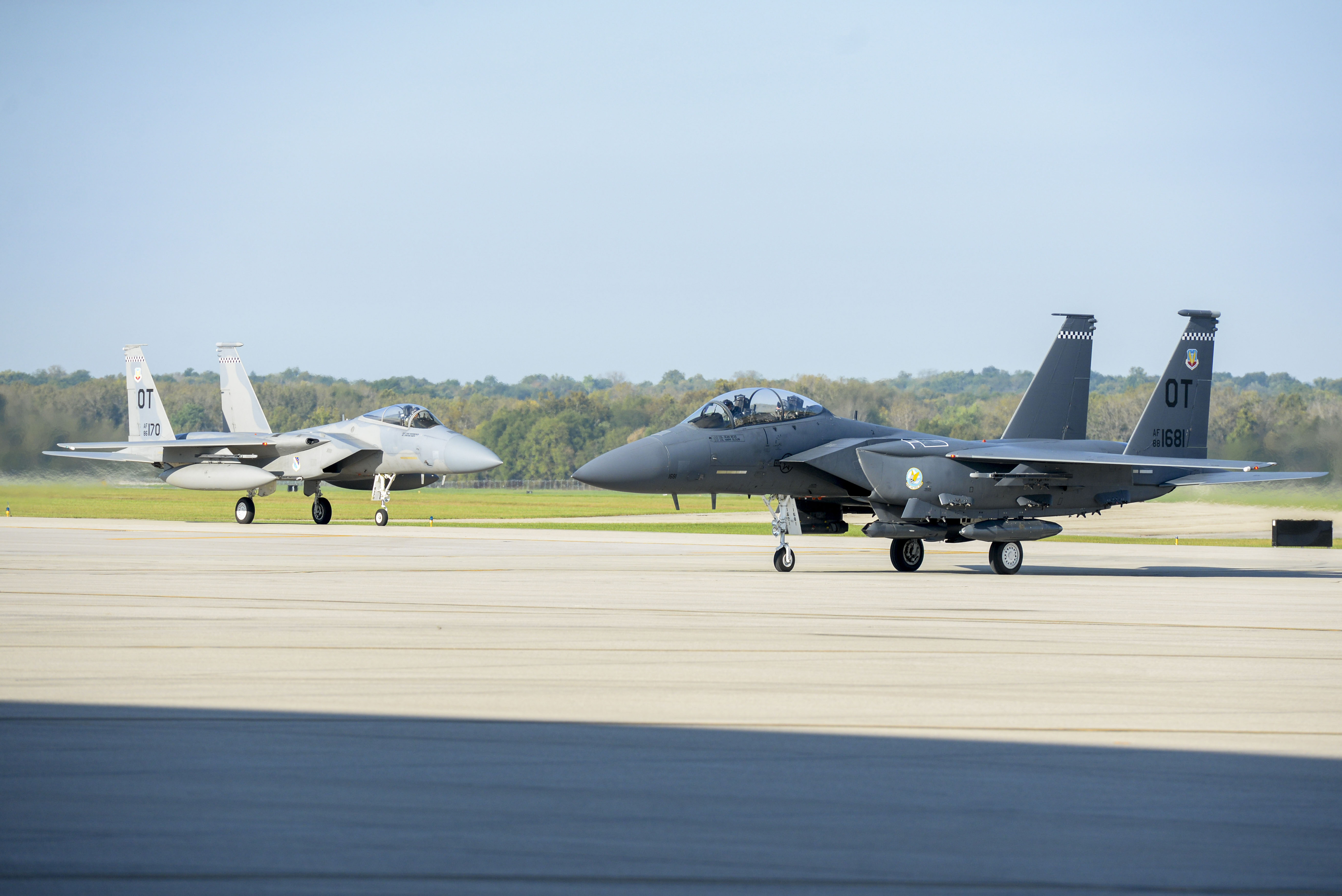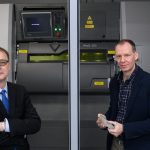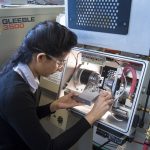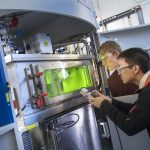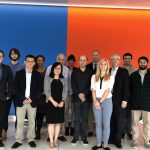The University of Connecticut has secured a four-year, $5.4 million contract with the Air Force Research Laboratory (AFRL) to provide next generation manufacturing solutions for the aerospace sector. This project will allow the U.S. Air Force to fully take advantage of new manufacturing technologies and maintain a position of strength in international defense. This is the first phase of a larger contract, which is expected to grow significantly in the next year.
“UConn is uniquely positioned to support major research and training initiatives for aerospace materials development, thanks to our world-class research capabilities and existing ties with major aerospace corporations,” said UConn President Susan Herbst. “On behalf of UConn, I am very excited that our institution is supporting our nation’s defense capabilities through this important collaboration.”
The award was first announced publicly last week by U.S. Sens. Chris Murphy and Richard Blumenthal and U.S. Rep. Joe Courtney.
“Connecticut is home to the best universities and manufacturers in the world, so we are thrilled to announce that UConn is receiving this grant from the Air Force Research Lab,” the members of Congress said in a joint press release. “This critical funding will be used for new aerospace research and developments that will go towards developing advanced materials and manufacturing processes for the Air Force.”
The project, titled “Simulation-Based Uncertainty Quantification of Manufacturing Technologies,” will help the U.S. Air Force develop more efficient manufacturing processes.
To manufacture the complicated parts used to build an aircraft, OEMs (original equipment manufacturers) start with relatively inexpensive raw materials. These then go through several steps to be shaped and formed into a very expensive component for use in the aerospace sector. At each step in the manufacturing process, there is the potential for uncertainties about the quality of the parts, which could lead to the part being scrapped.
The UConn-AFRL collaboration seeks to understand each and every step of the manufacturing process to eliminate failures in specialized aerospace parts. Better understanding the manufacturing process will lead to reduced costs, improved component and system quality, and enhanced industrial capability.
The program is led by Pamir Alpay, General Electric Professor in Advanced Manufacturing and executive director of the Innovation Partnership Building at UConn Tech Park, and Rainer Hebert, associate professor of materials science and engineering and director of the Pratt & Whitney Additive Manufacturing Center.
“Through UConn’s expertise in specialized manufacturing simulation, extensive materials analysis, and process modeling, we will provide transformative capabilities for AFRL, OEMs, and their supply chains to reduce scrap rates, increase yield and performance, and cut down failures,” said Alpay.
Research and development activities will be conducted at UConn’s Innovation Partnership Building (IPB) at UConn Tech Park. The IPB is UConn’s premier center for cutting-edge research and industry collaboration. To date, IPB partners have invested more than $80 million for research projects in a variety of sectors, including additive manufacturing and aerospace.
Seven faculty researchers, 10 doctoral graduate students, and two postdoctoral researchers from UConn’s School of Engineering will work on the projects. Industry partners for the program include Pratt & Whitney, Aero Gear, and GKN Aerospace. Collins Aerospace and Sikorsky are also expected to collaborate on the project in the future.
“The intellectual depth, capabilities, and capacity, combined with state-of-the-art research facilities at UConn, will provide the tools necessary so that our federal and industry partners can integrate them into U.S. defense strategies and strengthen the nation’s global dominance in materials development for the aerospace sector,” said Radenka Maric, UConn’s vice president for research.
Other UConn researchers involved in the program include: Hal Brody, Distinguished Professor of Materials Science and Engineering; Jeongho Kim, associate professor of civil and environmental engineering and director of the Connecticut Manufacturing Simulation Center; Jiong Tang, professor of mechanical engineering; Serge Nakhmanson, associate professor of materials science and engineering; and Dianyun Zhang, assistant professor of mechanical engineering.
